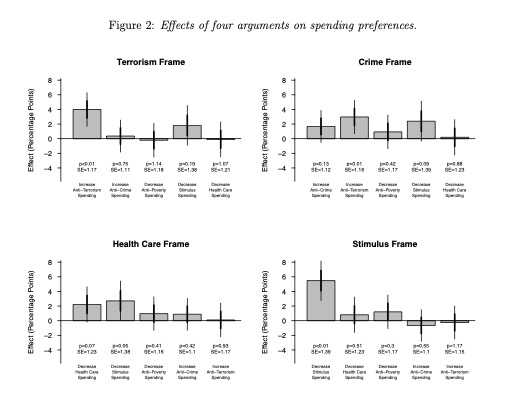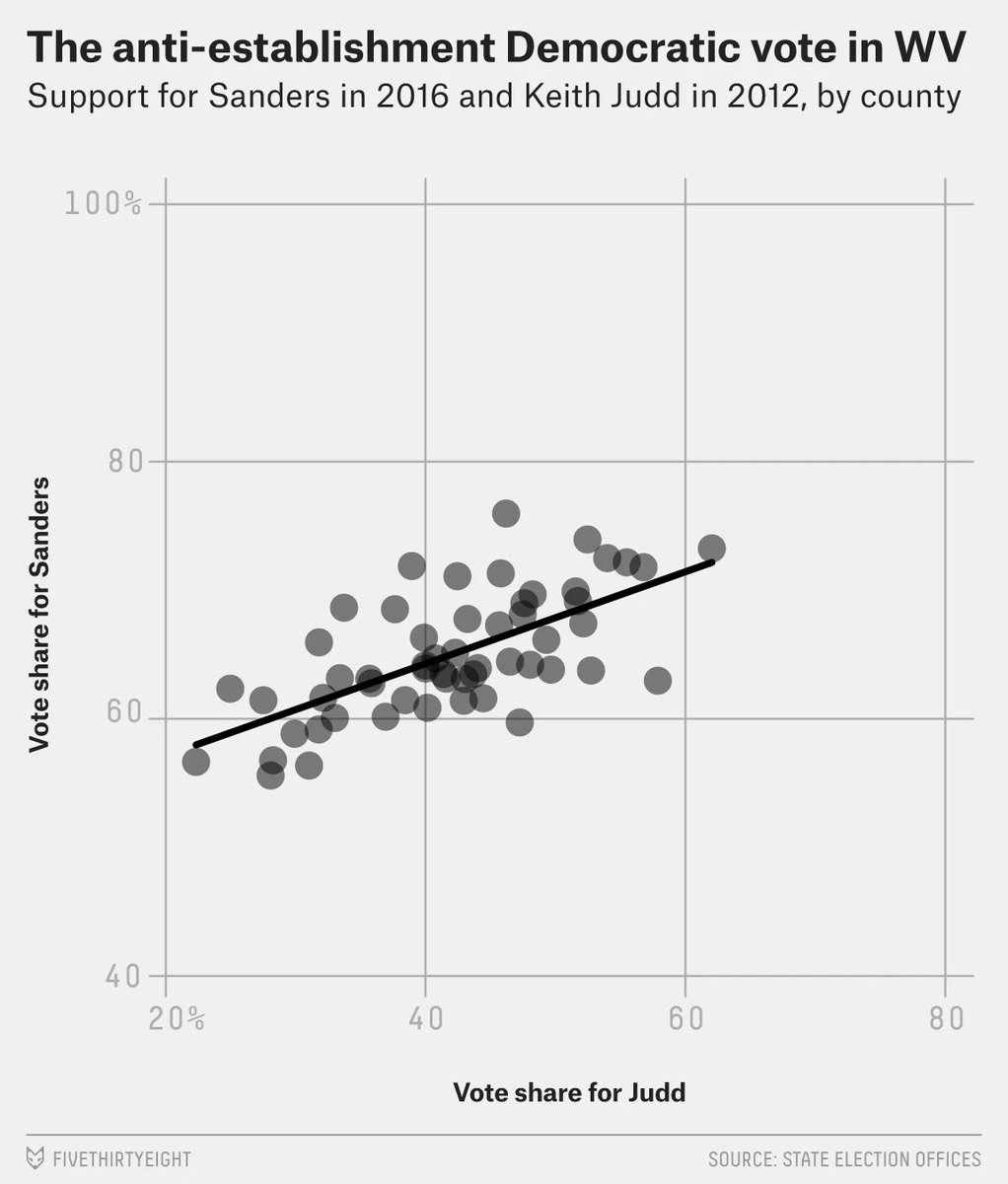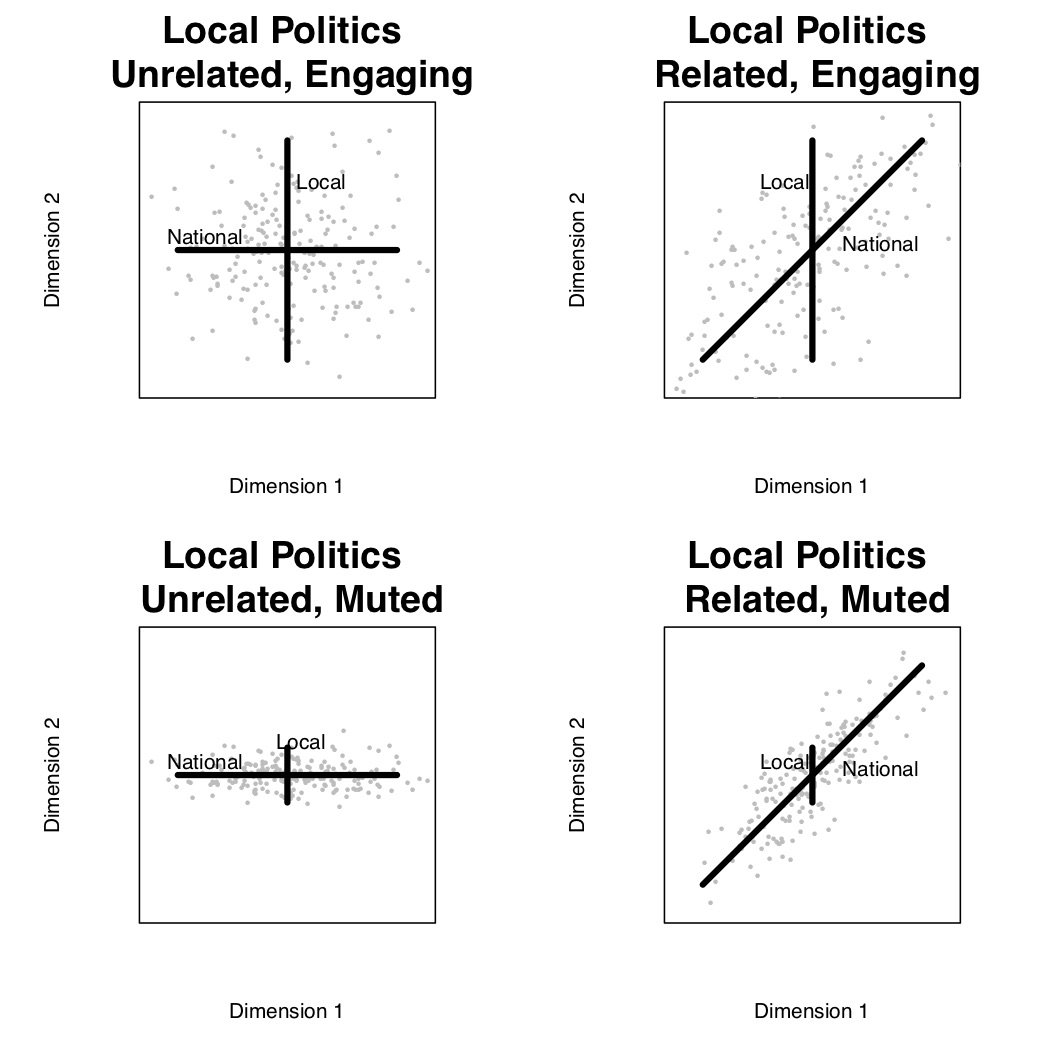
Political scientist @Penn. Prof: https://t.co/URr9ybQSEQ 538: https://t.co/Hw9WeVU85Z #polisciresearch
How to get URL link on X (Twitter) App


 In the paper, we use the ISCAP panel (2007-2020) to examine the impacts of negative economic shocks like unemployment and income drops on Americans' attitudes towards unauthorized immigration.
In the paper, we use the ISCAP panel (2007-2020) to examine the impacts of negative economic shocks like unemployment and income drops on Americans' attitudes towards unauthorized immigration.
 2) I know from prior studies that the relationship between changing racial/ethnic demographics & political behavior is hard to isolate--rapidly changing communities differ in many ways.
2) I know from prior studies that the relationship between changing racial/ethnic demographics & political behavior is hard to isolate--rapidly changing communities differ in many ways.

https://twitter.com/BJPolS/status/1564963080861356035The paper uses the ISCAP panel to track the same population-based sample of US adults' political attitudes 2007-2020.




 Using the 2007-2020 ISCAP panel survey, I track a population-based sample of Americans who were 18 by 2008.
Using the 2007-2020 ISCAP panel survey, I track a population-based sample of Americans who were 18 by 2008. 

 It looks at a question about elections which is both important and overlooked—when we see changes in party support from election to election, are they driven by changes in who turns out (composition) or in which party consistent voters support (conversion)?
It looks at a question about elections which is both important and overlooked—when we see changes in party support from election to election, are they driven by changes in who turns out (composition) or in which party consistent voters support (conversion)? 
https://twitter.com/dhopkins1776/status/1349713786677112832With respect to levels, it's key to note that English-speaking Latinos in that general-population panel were markedly cooler on Trump even in October '20 than White Americans--36 vs. 48 on a 0-100 scale.

https://twitter.com/dhopkins1776/status/1349480688920227843There's not much in my survey data that hints that 1/6/2021 is on the horizon.



https://twitter.com/monkeycageblog/status/1322133074365288448We report results from a new working paper analyzing 6 key states: FL, GA, MI, NV, OH, and PA.


https://twitter.com/dhopkins1776/status/1257731021526704129In early April, 59% said "We must continue to stay home for as long as necessary, even if the economy suffers." By early June, that was down to 43%, with 46% instead saying "We must reopen the economy as soon as possible, even if more people will get sick." (Had been 27%.) 2/n





 Politics can be nationalized when state, national divisions are over similar issues (figures on right side). But politics can also be nationalized when voters care only about nat'l issues, aren't engaged in state or local pol (figures on bottom). 2/n
Politics can be nationalized when state, national divisions are over similar issues (figures on right side). But politics can also be nationalized when voters care only about nat'l issues, aren't engaged in state or local pol (figures on bottom). 2/n